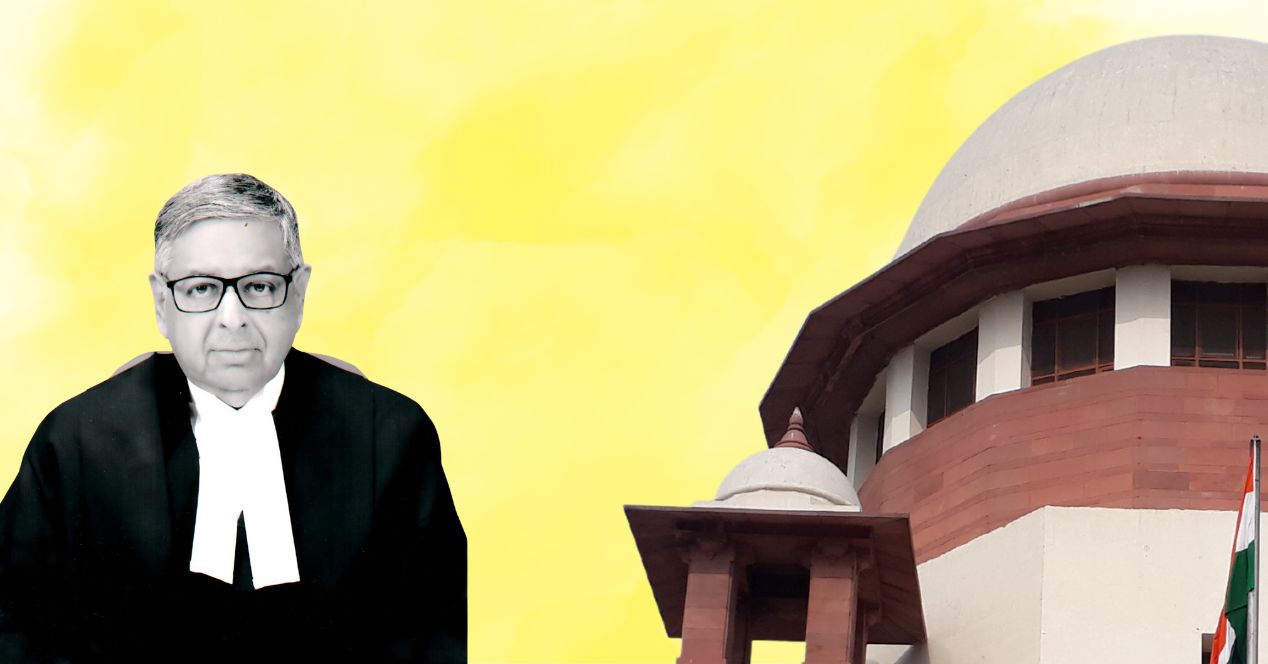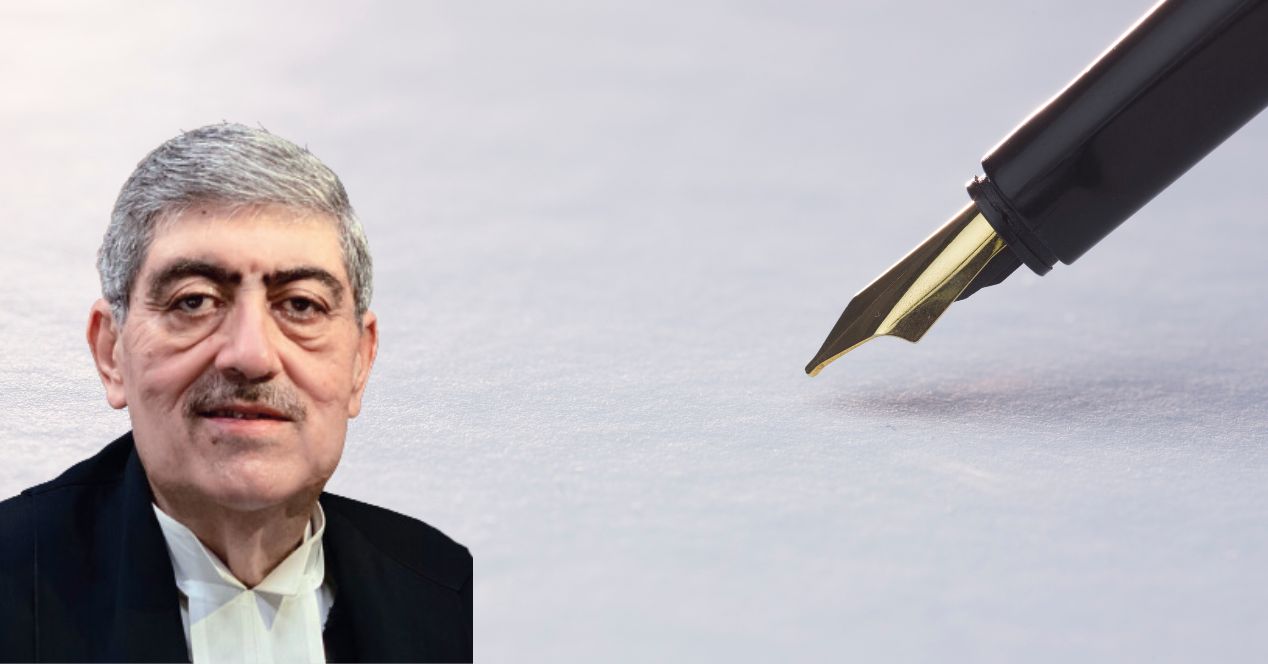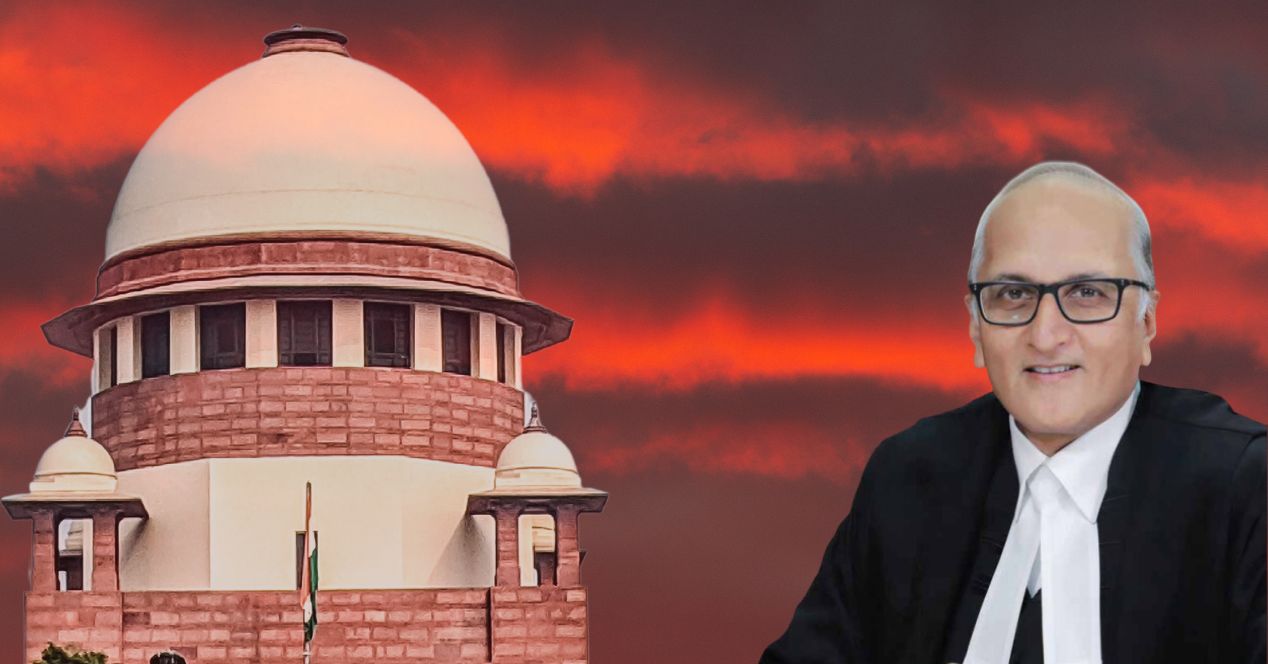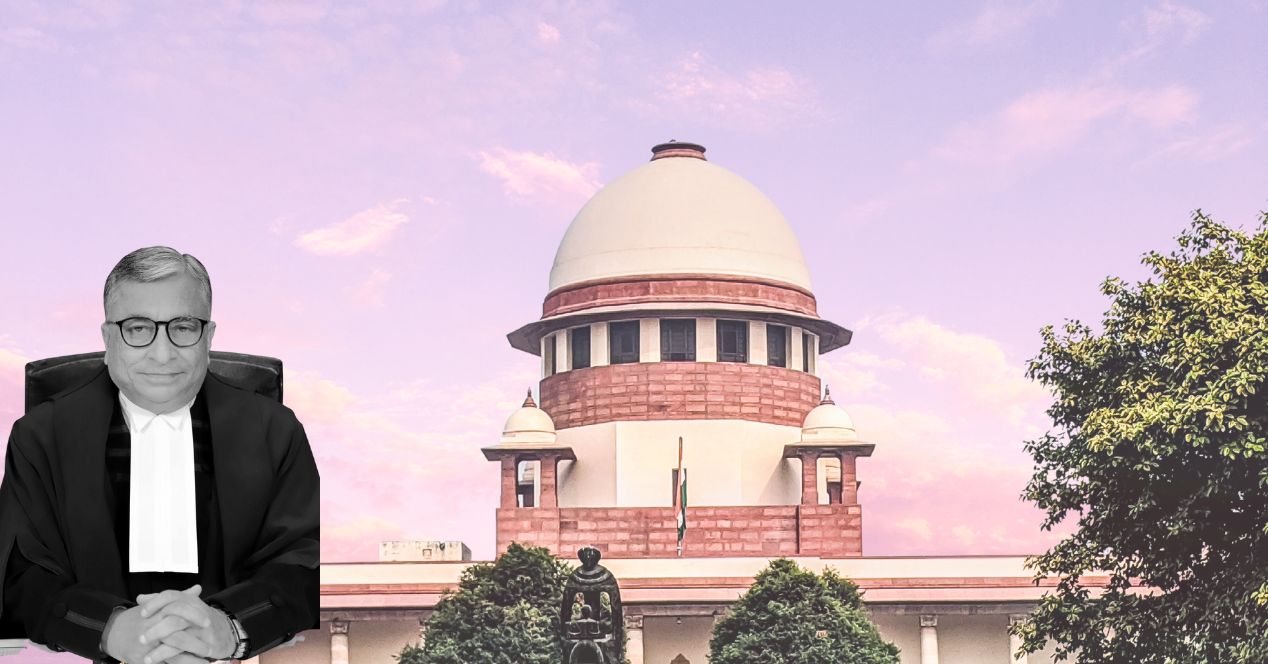Analysis
Justice A.S. Bopanna’s Notable Judgements
From demonetisation to legislative immunity for lawmakers, Justice Bopanna was part of key Constitution Bench cases at the top court
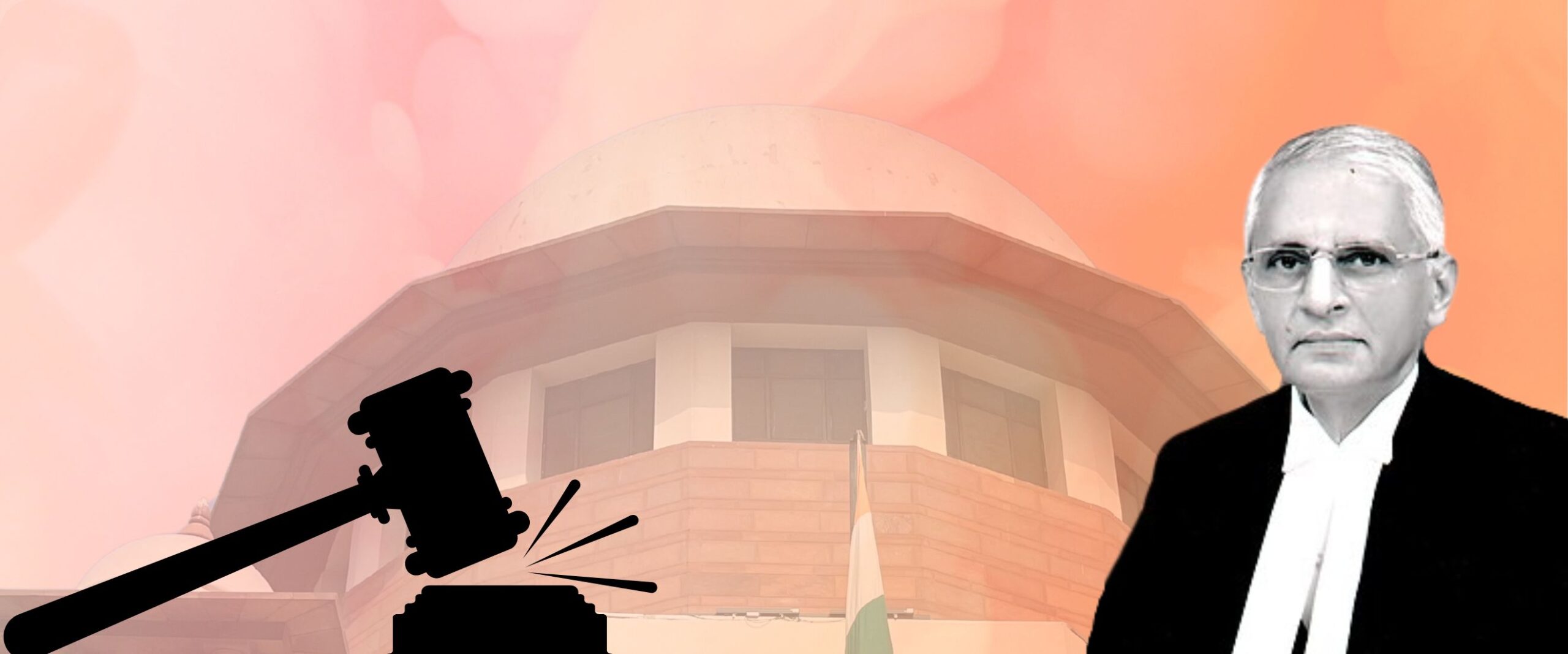
Justice A.S. Bopanna retires on 19 May 2024 after a tenure of nearly five years at the Supreme Court. During his tenure, he was a part of 518 benches and authored 91 judgements (as of 15 May 2024).
His tenure was marked by his contributions in significant Constitution Bench decisions such as the challenge to the 2016 Demonetisation Scheme. Justice Bopanna was also part of two Constitution Benches that clarified the law on corruption by public officials. In the first case, a five-judge bench held that a public servant could be held liable for corruption based on circumstantial evidence. More recently, a seven-judge Constitution Bench overturned a 1998 judgement which granted immunity to lawmakers in cases of bribery.
Justice Bopanna was also part of the Constitution Bench which held that a public official’s freedom of speech cannot be restricted in favour of another person’s fundamental rights.
Challenge to the 2016 Demonetisation Scheme
On 2 January 2023, a five-judge Constitution Bench upheld the constitutionality of the Union’s demonetisation scheme in a 4:1 majority.
The Union had notified the scheme on 8 November declaring all ₹500 and ₹1000 notes were no longer legal tender. The objective of the scheme was to curb the circulation of black money. Advocate Vivek Narayan Sharma and several others challenged the scheme on the ground that only the Reserve Bank of India and not the Union could advise on the demonetisation policy. The petitioners also argued that both the limits on withdrawing cash and the process by which the scheme was implemented, violated the fundamental right to equality and livelihood.
As part of the majority judgement, Justices B.R. Gavai, Abdul Nazeer, V. Ramasubramanian and Bopanna decided that the demonetisation scheme was within the parameters of the RBI Act. Justice B.V. Nagarathna dissented, holding that the Union’s actions had exceeded powers under the RBI Act.
Parliamentary immunity in cases of bribery
Justice Bopanna was part of the seven-judge Constitution Bench in Sita Soren v Union of India (2024) which unanimously held that lawmakers were not protected with parliamentary immunity in cases of bribery. The Bench was reconsidering a 26-year old judgement in P.V. Narasimha Rao v State (1998). In that case, a five-judge bench in a 3:2 majority extended parliamentary immunity to lawmakers under Article 105(2) even in cases where they received bribes to vote. However, the bench held that this immunity did not extend to those who did not cast a vote or those who gave the bribe.
In 2012, Sita Soren, a member of the Jharkhand Mukti Morcha was accused of accepting bribes from an independent candidate to vote in their favour in the Rajya Sabha Elections. Ultimately, Soren voted in favour of a candidate from her own party. Soren approached the Jharkhand High Court seeking the criminal charges to be quashed, arguing that as an MLA, she was protected under Article 194(2) of the Constitution. Relying on Narasimha Rao, the High Court noted that since Soren did not act per the condition of her bribe, she did not enjoy immunity.
On 4 March 2024, the seven-judge Constitution Bench of the Supreme Court comprising Chief Justice D.Y. Chandrachud and Justices M.M. Sundresh, P.S. Narasimha, J.B. Pardiwala, P.V. Sanjay Kumar, Manoj Misra and Bopanna struck down the precedent in Narasimha Rao and held that MPs and MLAs are not protected through immunity under Article 105(2) and 194(2) in cases of bribery. The Court also laid a two-fold test for claiming immunity. First, the judges held that the act for which immunity is sought, must be connected to the “collective function” of the House. Second, they held that the immunity should have a “functional relationship” with the discharge of duty of the individual legislator.
Circumstantial evidence in bribery cases
Justice Bopanna was also part of the five-judge Constitution Bench which held that a public servant could be convicted for bribery on the basis of circumstantial evidence.
The case was Neeraj Dutta v State (Govt of NCT of Delhi) (2022), concerning a bribery matter from 2000. In this case, a lower Divisional Clerk had demanded a bribe of ₹10,000 for an electricity metre installation. The question before the Court was to determine whether circumstantial evidence is sufficient to hold a public official guilty of demanding bribe or illegal gratification under Sections 7 and 13 of the Prevention of Corruption Act, 1988.
On 20 June 2023, the Court unanimously decided that circumstantial evidence was sufficient in cases of bribery.
Extent of the freedom of speech and expression
On 3 January 2023, a five-judge Constitution Bench by a 5:1 verdict held that the grounds to restrict Freedom of Speech under Article 19(2) were limited.
The case arose in July 2016, when a young girl and her mother were allegedly gangraped in Uttar Pradesh. Following the incident, Samajwadi Party leader Azam Khan made a statement terming the allegation as “political conspiracy against the Uttar Pradesh government.” The victims moved the Court in August 2016 seeking action against the Minister for his remarks. The core issue before the Court was whether freedom of speech and expression under Article 19(1)(a) is restricted by only Article 19(2) or other fundamental rights like Article 21.
Justice Bopanna was a part of the majority decision which held that the restrictions on freedom of speech are exhaustive under Article 19(2). The majority also held that some fundamental rights, like right to liberty, can be enforceable against non-state actors.

